Video recording
Audio recording
In this episode, we’re happy to have Ally Dodoo joining us! She’s a Fundraising Campaign Manager with over 6 years of experience helping more than 30 organizations create a strategic plan for sustainability by leveraging their online presence. She coins herself a social change influencer.
During her time as a fundraising campaign manager, she has worked in partnership with the Dallas Cowboys Stadium, Create Her Foundation and Project Still I Rise to name a few. Her mission is to advocate for a brighter future for social change influencers, nonprofit has been an ugly word for so long, it’s time for a makeover.
Mentioned Resources
Episode Transcription
David: Welcome to the Non-profit Digital Success Podcast. I’m your host, David. In this episode, we’re going to be talking all about how to use social media to boost your online presence and fundraising efforts with Ally, welcome.
Ally: Hello, how are you? How’s everybody doing? I’m so excited to be here. This is going to be extra special for everyone today. I know everyone loves social media, so we’ll break down some gems for you all, hope you enjoy them.
David: Awesome. So over the last six years, Ally Dodoo has helped over 30 organizations create a strategic plan for sustainability by leveraging their online presence. She coins herself as a social change influencer. During her time as a fundraising campaign manager, she worked in partnership with the Dallas Cowboys Stadium, creating her foundation and project Still I Rise just to name a few. Her mission is to advocate for a brighter future for social change influencers and non-profits. Awesome to have you here. Tell us something about yourself that isn’t business related.
Ally: Thank you so much for having me. Thank you for that warm introduction. I love musicals. I just saw Elsa live the other day in the Dallas Theater and it was a great time. I felt like I was in high school, torn, you know, with the choir in the band, doing musicals all over again.
And it was the best thing ever. I was able to introduce, well, my husband got the tickets, so we’ll give him the credit, but he was able to introduce it to our five-year-old daughter who loves all things Frozen. And we just had a really good time. I was glad to just be back in that space. So, but yeah, I’m a music lover.
David: That’s amazing. Fantastic. All right. So let’s jump in and let’s talk about building trust, right? So what should organizations do to build trust with their online audience?
Ally: It’s very important to figure out who you’re talking to first, because if you know who you’re targeting, who you’re targeted donor is in our case, then you’re going to know how to speak to them in a way that’s going to make them trust you. Everybody’s not going to want to see fuzzy, warm animals.
Some people are going to want to see what the facility looks like. They want to see, you know, what you’re doing, the steps that you’re taking to rescue those animals. They want to see what type of equipment you’re using, what type of food you’re giving them. The pictures of them just being happy and healthy might not always work for everybody.
So you have to figure out who you’re talking to first so that you can build that trust with them. And the other thing is you’re going to want to, once you start doing that, you’re going to want to be consistent with it. The more consistent you are, the more transparent you are, people will begin to trust your organization, trust that you are doing the things that you say that you’re doing, and they’re going to be more likely to give you those fundraising dollars
David: For sure. And you need to be genuine and authentic in what you’re talking about and what you’re doing. And you know, not everything has to be a completely staged photo. It’s okay to take out your phone when you’re somewhere, and like take a snapshot of yourself, right?
Ally: Yeah. We definitely want to see those “behind the scene” moments and some of those ugly truths. So, sometimes, we want to see some people want to see all of that to say, “okay, this is the girl that I’m going to give a thousand dollars to because I know that her heart is there”
David: Yeah, and part of that, I’ve mentioned it on a number of episodes, you need to build a story. Have that kind of talk through everything and let that be the string that connects your organization from every interaction.
Ally: Of course. Yeah. Storytelling is the number one most important thing that you’re going to have to use when fundraising, everybody wants to kind of follow along through the journey of your organization.
David: A hundred percent and, you know, leveraging your online presence is a really important piece of that story and building your organization’s credibility. So how does having this online presence work for leveraging organizations?
Ally: Hmm. The online presence, the way I talk about, it’s kind of funny. So, I learned from an executive director here in Dallas that I met her at a brunch and she told me something that really changed the way that I fundraise. She said, “sales plus marketing equals fundraising”. So your online presence is not just for the donor, it’s for the donor, it’s for the partners, it’s for the corporations, it’s for anyone and everybody who you are going to ever do business with. It’s like your resume. It’s like, “this is me”.
This is, and then on this other side, this is what I’m doing. So with your online presence, you have an audience, those corporations, they don’t always want the halo effect. They don’t always want warm, fuzzy. Sometimes they want to tap into your audience because if your audience is a customer, potentially, or people that they might, can sell their stuff to, and you have a big audience, then they’re going to be like, okay.
I mean, I’ll give you an example, you know, the pink ribbon people. So, the yogurt, they got pink ribbons on yogurt. Okay. Like why? So, but you know, it’s one of those things where they’re like, “Okay, you guys have a large amount of people that relate to your calls, that follow you. What can we sell through you that would give us some recognition as well?” So you play probably came to them and they’re like, “Hey, I know you guys are not in the food business, but, but y’all know a lot of people, and we want those people to eat our yogurt”.
So when you have that, that’s kind of one of the things you gotta think about when you’re building your online audiences. They want something that they could sell things through, and I know everybody doesn’t really like that, and everybody doesn’t really want to hear that. But I mean, that’s just the society that we live in.
So when you create this big audience, you’re creating potential customers for some of these other corporations and other organizations. So that’s one of the reasons why it could be of value to your organization, because you can say, “Hey, I have this big audience. Maybe you could, you know, sell something to these people”. We’re all influencers in that sense, when it comes to that
David: A hundred percent, we need to look at different ways as organizations to bring in funding dollars or contributions or awareness, right? Yeah, there’s something to be said for having brand ambassadors, right? Where people will go out and share your content and get more eyeballs on what it is that you’re doing and, and awareness.
Ally: Yes, that’s true. Yeah. It’s really all about awareness and being able to connect your audience with someone else’s customer base and their customer base with your audience. It’s a partnership. That’s what it is. It’s a partnership. And if you could bring, if you could leverage your value as an organization that has a lot of awareness, more people are going to want to attach themselves to you and then you get more exposure and more funding dollars.
David: Absolutely. And you know, speaking of online presence, we have to think about social media, right? It’s just, it’s part, for better or for worse. We can argue that probably to the end of time, but we need to think about social media, and if a non-profit, if an organization doesn’t have a social media presence on X platform, will registering on social increase your chances of getting donations?
Ally: Yes. For some, for those that it doesn’t, you could use your website as, you know, one of those things or you could use ambassadors. If you don’t want to be online, which I don’t recommend, but you don’t want to be online, you could have someone like one of your board members who doesn’t mind being online, manage that for you. Or you could use your website as a highlight.
You could use… It doesn’t always have to be social media, you could use blogging, you know, just writing articles on the things that you do in your organization. You could use those. So there’s different avenues outside of social media where you could kind of go around because social media can be overwhelming. It is a lot. It is a lot. And there’s a lot of social media platforms. So I understand it could be a lot, but you do need some type of online presence.
Whether it be a Facebook group or a blog or someone else that’s doing it for you. There’s so many different ways to like, I run, I manage platforms for organizations. So the organization that I work for, the lady, I don’t even know if she’s ever seen her social media page.
Probably the one time that I showed it to her to ask her like, “Hey, do you think this is okay?” and she told me to stop doing that. So everybody doesn’t want to be on social media that doesn’t like, it doesn’t care for, but she knows that it’s a tool that she needs to raise funds and to raise awareness. So she’s hired out for it. So you don’t always have to be the expert on all things. You don’t always have to be the professional. You can definitely bring somebody to manage those campaigns for you. Or you could use your website or your like a blog space.
David: I think that’s a really important point to note is, you know, yes, you do need a presence, you do need to be online in some way, shape, or form, right? When somebody goes to Google and searches for Alzheimer’s research, right? You want to be found if that’s what your organization does. And the only way to do that is actually to be online.
So, you know, one thing that I want to mention is talk to the people that works for you, or works with you, or volunteers with you, or donates to you; find out what social media platforms they’re using. You know, hit up the one, the one most popular, or the top two, if you don’t have a lot of time and you don’t have to be on there all day, every day, pushing content. It’s okay to do something once a week. Right. What you do need to pay attention to though, is conversations that happen, right? So you might post something once a month, but if you get 10 people replying, you want to try to leverage those conversations in a meaningful way.
Ally: Yeah. I don’t use all of my platforms in the same way. I’m a lover of TikTok. I think it’s so much fun, but I don’t post fundraising tips on TikTok. I might post more of getting ready for things, getting ready for events, event tips, freelance tips, but not necessarily fundraising tips, because I know that my audience, the people that I need to book my services are not on TikTok to find out how to fundraise.
They might be more on, well, I’ve done my analytics obviously, but they’re more on Twitter and on LinkedIn. So, you don’t have to be everywhere and do all things. Figure out where your people are or what’s fun for you, what you like to do, and just leverage that one platform. So, if I sent everybody that I want to work with me to LinkedIn, that would really be enough because I know that they’re there.
You know, I’m looking for other non-profit professionals, professionals are there. So if I want to find them, I know just to go there and I’m not going to post the same things on LinkedIn, that I’m going to post on TikTok. Nobody’s going to see my dance moves on LinkedIn. So just go where your people are and focus in that one area, and then you could do away with the rest of them or have fun and the rest of them.
David: Okay, so I’m a small non-profit, I pick up my phone. I send you an email, Ally, I have a small non-profit. What can I do to stand out on social media?
Ally: Tell us your story. Necessarily. I know everybody’s here and everybody say that all the time, but walk us through your journey from the beginning to the end. I mean, everything. We want to know why you started. We want to know who inspired you. Did your mom run or have a non-profit? You know, cause your grandfather, you know, I hear a lot of people when it comes to non-profit in fundraising, it kinda starts with your parents.
So, tell us which one of your parents inspired you, who in your family or your school or whatever. Because when it comes to non-profits we all have a deep, for the most part, story as to like why we do what we do. So, definitely tell us your story, and keep telling us your story and watch your audience continuously grow. And, you can do that over and over and over and over until you start having those people that your story resonates with.
Then when you’re telling your story on your platform, you could also tell it on other people’s platforms. Hint, speaking with you, or different people. We go on, you know, Q&As, or you go and speak publicly, you write a book, coloring book, whatever you could tell your story through so many different lenses, but definitely tell your story until you can’t talk about it anymore. And you’ll see the growth start to happen.
David: Absolutely. And if your story isn’t really there, you’re not really clear about what it is. Find some people that work in your organization, talk about why is it that they were drawn to work for you. I’m sure you’ve got some volunteers unless you’re starting up from scratch as a non-profit. Find somebody there, tell that story, right? And, and be specific, you don’t want to necessarily talk about, “oh yeah, we raised $2 million in funding last year from our donors, and we love our donors”. Right. But what’s the impact of that money? How did it help? Who did it help? Tell that story also.
Ally: Yeah. I give you an example and I won’t go up too deep into it, but I wrote an email copy for an organization maybe a couple of months ago and the organization, they empowered women from 12 to 17 or something like that. And most of the people, most of the kids are parents of single mothers. So, in the email copy, I wrote, and I don’t know what made me, I don’t really dunno what made me do this.
But, when I thought about it, I was like, “Oh, my mom used to be a single mom before she married my stepdad”. And I remember it a little bit, but when I was writing the email copy, what they were telling me about their story resonated with me, and I was able to put that in the email copy. So I said in the email copy “As a daughter of a single mother, I blah, blah, blah”.
So I basically put a piece of my story with their story. And then I sent it to, who knows, hundreds of people, right? I want to say her email, her subscriber list is like 500 people. So, say I sent this to 500 people, you know, email blast. And half of the emails that we got back were talking about their parents. I was, my mother was a single mother, and my mother came over to this country, you know, and my dad died and I was like war stories.
It was like, “oh my God, like, I wish I could collect all of their stories and put it in some type of case study for people can understand that those emails” once you grab people’s attention and you really put your heart into it, they resonate with people. So, and then they, that’s where that money starts to come from.
It’s like, okay, well now, you know, they’re like, they’re going to give her their money. You know, they started sending in donations and the ask was $1,420. It was $1,420 for each student. And she was campaigning to send 30 students on like a college tour type thing. So I need $1,420 for 30 students sitting on a college tour.
It did not take long at all because it was such a reasonable, well thought out, ask. It did not take long at all for all 30 of those students to have that $1,420, and then half of that information was coming back. It’s just like, yeah, I was a, you know, all these stories. I’m like, oh, we need to do that again. We need to rinse and repeat, I’ve never made, you know, I wish I would’ve asked more, you know, all this kinda that goes through our minds as fundraisers. I’ve never made that much money, that fast for something as little as something that resonated with me also resonated with somebody else.
And I hadn’t thought about my mom being a single mom in years because I grew up with my stepfather. I was like, ”well, I guess my mom was a single mom for a while. Let me ask her how she felt about that”. You know? So, but yeah, it caught a lot of people’s attentions and they were able to give very quickly, very quickly. There wasn’t a whole lot of second ask there wasn’t a lot of follow up emails. It was such a reasonable, tangible thing that we raised the money in, like less than 30 days.
David: That is fantastic.
Ally: Yeah. It’s crazy. I’m pretty sure it’s a once in a whenever, you know kind of thing, but you know.
David: You’ll find out the next time you do something similar, Right?
Ally: I know, right.
David: Being able to connect with people on that emotional level is something that a lot of people really, really struggle with, but it’s so critical.
Ally: Yeah. It is. It is. It really is. It’s, this is just why storytelling is so important and you never know what part of your story is going to resonate with people. So stop trying to guess and just put it out there.
David: I would argue that months after people listen to this episode or watch this if they’re seeing it on YouTube, that they’re going to remember this story about, you know, a simple email was able to raise, you know, 30, 35, $40,000 to help these students go on this college tour, right? That’s incredible.
Ally: Yeah. I don’t know how often it happens, but I hope it continues to happen. I think it was the storytelling, and also because the ask was so specific and it just made sense, you know, it just makes sense. The way everything is laid out, it was very like, they’re going to get food, they’re going to get shelter, they’re get a car when they’re 14, 20.
It’s like, okay, I get that. I get, you have to drive somewhere. I get, and I think the headline for the email was like, ”Man, college was epic”. Like the subject line, it was like, “College was epic, right?” So it started out as a connection. So, I’m going to have to try that a couple of more times and see if it works, but I don’t mind sharing. I would really probably just share the email cause you know, you never know who could take it and make something, make something for their organizations as well.
David: That’s awesome. So is that your favorite fundraising strategy or is there, do you have a fundraising strategy that is like your go to every time?
Ally: That is not my favorite because emails are a lot and you do have to answer all of those emails as they come back in. Because some people might want to know more, you know, so no, they are not my favorite. And in those that are considered, you call them mass emails, but they’re really not because once they like respond to you, you have to go through and individually like talk to people. So you’re sending it out one time to 500 people, but you are having 500 conversations if they respond also. So no, that’s not my favorite one. My favorite strategies are events, but only because my background is events. So I was an event planner for quite some time. So, and I did corporate events. So when you start off in crazy, you kind of just, you kind of get used to it and it it’s, you’re now you’re built for chaos, right? So events are probably my favorite ones.
Ally: I’m learning about. I was on that FreeWheel zoom. I’m learning about like bequest and QCD and stock and crypto fundraisers and things like that. And those strategies are so interesting. I’m so excited to like, do different events behind those. We have one coming up in October that is for retired NFL players and it’s an estate planning event.
So they’re going to have a golf-like outing even, and the ask for those retired players because the organization is ran by 3 NFL players retired. The ask for them is let us help you with your estate planning, let us help you create a will, and in your will, you will leave some money to our organization. Now, if you know anything about NFL players, they go into this thing really, really young, into this profession, really young. They come out of it kind of beat up and stressed out sometimes. And they don’t always have the tools that they need to do something like this, to do with state planning.
So we’re going in like a health and wellness kind of thing. So leading up to the event, there’s like webinars for them and like meeting n’ greets and like all these different, you know, tools, financial advice and tools for them. And then on the actual event, they’re going to go out and have some fun and hopefully they’ve already done their wills and stuff by the golf tournament.
But I think those are, that’s a combination of hybrid and in-person events. So the hybrid events are before the seminars and webinars and then the day of is in-person event. So those are probably my favorite. I think those are by far, by far, my favorite because it’s really like three months’ worth of fun. You know, it’s three months of worth of all these different things that’s going to tie into this big day and then you get this big “hurrah sound”.
So, but I love a good turn-up. So, you know, that’s just me, but I’m excited to, cause we usually do individual donations with this type of event. So I’m excited to add the bequest strategy into this type of event. And because I know that bequest is having so much success. So I’m excited to add that to, you know, that strategy to this event and then see what happens.
David: I think that’s a really important part to kind of think about is, you know, the estate planning and bequests that can come from that. There’s a lot of money that’s going to be transferring down all this huge amount of wealth from like the baby boomers and you know, their parents. So like, my parents and my grandparents generations, right? The circle of life, people are going to be passing away.
You want to try to engage, maybe those people that are their children. And eventually, If you nurture those relationships down the line, right, there might be somebody that comes, but also have some of those kind of conversations. Like “Our organization couldn’t be around without people like you, blah, blah, blah”.
And then, you know, the next conversation is have you thought about doing, any organization could take this, right? Doing an estate planning webinar or session for your audience that you’re going, that you’re attracting. And then work that kind of in, I think that’s a really interesting model.
Ally: Yeah. Yeah. I’m excited about it. I’m happy to see, hopeful, to see where it goes, because I know it’s going to be good for the organization that we’re working with. They’re excited about it. And it takes everything off of just that one event, because it’s like a, it’s like all this learning that they’re getting before and then they’re getting to have fun. So it’s going to be good. Yeah.
David: Sounds exciting. Sounds really exciting. Speaking of fundraising strategies, what’s an unconventional fundraising strategy that you’ve used for your clients?
Ally: Probably the silent auction. I don’t typically use that one. I know that it works well during like galas and different things like that. And I say it’s unconventional because it’s one of those things. I don’t know. It just still confuses me, but probably that one, and then the QCD model, which I used in partnership with someone else. It wasn’t just all me.
I haven’t done it on my own before, but I used it in partnership with another organization. And that one was really interesting. For those of you don’t know, it’s just like where you basically give a charitable donation on the back end of your tax dollars or something like that. And don’t get me to try to explain it exactly. I still need to learn more about it. But when the organization used that model, people were really responsive. Their donor base was really responsive to it and they liked it and it provided something for them, which I thought was interesting.
It’s educating the donor about something that they don’t really know about and then teaching them how to use it to their benefit. So I thought that was really cool. I hadn’t used it on my own before. I would love to. It was really interesting. So, but what I like the most about it is that it was so helpful to the donor. I mean, that’s like a win-win situation. It was so, and I know that estate giving is helpful to the donor.
Yes. But you know, so, but the, this is, you know, they’re living, they’re alive.
They’re still around while this money is being given and it helped them. So that one was really interesting. I want to know more about it. I want to learn different ways to use it with some of the organizations that I work with, but I am glad that I was able to work on that with that organization because I would’ve never even known that that was a thing, you know, and that it was such, so helpful to them and they raised a lot of money. It raised a lot of money. That’s why it’s still, even though I don’t get it, it’s still on my mind. because it raised the kind of money that you don’t even really just say out loud like that it was a lot of money, so yeah.
David: That’s awesome. Alright. So I’m a new startup non-profit. I just got my 5013 C or charitable status, whatever country you live in, what message do you have for somebody who’s just starting out?
Ally: Just start because a lot of the smaller organizations have a problem with starting. So just start and don’t go after the money first. Ooh, don’t get me. Don’t go after the money first, do the work, do the work, do the work and the money will definitely come. Do the work and do the work consistently. Community outreach programs, people sleep on community outreach programs.
When you’re looking for your target people. Host something for them, something small. And the other big, big, big, big thing is look at somebody who is doing the organization that you want to do. That’s running their organization the way that you want to run your organization, reach out to them, ask to work for them, ask to join their board, ask to become a brand ambassador for them.
Something where you can get the information from them that you need and be, I mean, be transparent about it. Of course, don’t just be information jacket. But go and reach out to them and learn, learn, learn, learn from people. So let’s just start, do the work, and then learn from an organization that you really love. And then the other one is “have your paperwork in order”.
I don’t know how many times I started working with a smaller organization. When I say small, I want to say, there’ll be maybe about three years in. I go to apply and I don’t write grants all the time, but every now and again, I will, I go to apply for a grant for someone and they don’t have their paperwork together. And it’s just like, that was, they won, you should done that. So you could like lose out on money and funding if you just don’t have your paperwork in order.
So, and when I say paperwork, your strategy plan, your financial articles, all of your behind the scenes business and all that stuff. And your, you know, have some of that stuff already done, especially your strategy plan. Please have your strategy plan done, at least so that when people come to work with you, they know what you’re doing. It can’t all be in your mind, like write it down so somebody can help you with it.
But yeah, those four things, there’s really not just “Oh, one thing”. There’s really not just the one thing. Because you go out and you try to do that, and you’re like, “Uh, uh Ally that did not work” this is like four, like four, those four things. Let’s get those done, and you’ll be good to go. You’ll see the money start coming in. You’ll see the supporters, you’ll see your audience and all that start coming in
David: A hundred percent. And you know, I think if anybody learned anything from this episode, I think the last minute and a half really kind of summarizes it all. There’s a lot of really great gold nuggets in there, for sure. Like community outreach, you need to involve people near you and dear to the cause need. People in non-profits love helping.
Now, I shouldn’t really generalize that much, but I would say maybe 8 out 10, 9 out 10 times, like people are there to help, right? And if you can call up an organization that’s near you and say, “Hey, you know what? I’m really struggling with this thing. Can we chat for, you know, half hour, 15 minutes”. Be able to get some insight. Offering to volunteer, I think is a great way to get some other insight into other organizations and their practices and yes, a hundred percent get your paperwork in order.
Yes. Need to have that there. If you can’t do it yourself, there are businesses. There are consultants. There’s people out there that can do it for you. So like a little bit of a life hack. Don’t stress about it. If you’ve got a little bit of funding, get somebody in that can do that for you. You can even approach your board and say, “Hey, like we all need to be donors as well”. And the goal of getting the board on board, right? If everybody gives a couple hundred dollars, right. Maybe you can pay for that consultant to deal with the strap plan for you and get that ball rolling.
Ally: Yeah. Yeah. That’s really good. I think they’re going to be good with that information at least getting started.
David: So I think so. I hope so. Ally, these have been some amazing insights around social media marketing and using that to leverage for fundraising strategies. I hope that the people listening have gotten some really great advice and pointers from you today. I know that I’ve picked up a couple things that I can pass on to our clients, from my agency and to everybody listening, I challenge you to take one thing. One thing that Ally spoke about, just one. Not even do anything, just talk to somebody else at your organization about it. Just say, “Hey, what do you think about this?”. And see where that conversations go. It’s all about taking the first step. Right? And you don’t know how well something is or isn’t going to work until you actually put something into practice.
Ally: Yes, that is so true. Thank you so much. Thank you for having me. This was amazing, David. This was so fun.
David: Thank you, Ally. If anybody wants to get in touch with you, what do they need to do?
Ally: You can find me on my social media. I’m always there. I’m on live like every day because I talk a lot if you can’t tell, but it’s Funding with Ally and Funding with Ally is on all platforms. Ally is A L L Y, my website is just my name, www.allydodoo.org. Reach out to me, say hi. For anyone that is watching this session, I am going to do a free 30 minute strategy for anyone who wants it. Just reach out to me on Instagram, @FundingwithAlly or on my website. And just like, “Hey, saw David’s podcast. I wanted to get my freebie” and I got you. It’s going to be fun. Let’s brainstorm and figure out what kind of strategies we could use to fundraise through the end of the year.
David: That is a fantastic offer, a free 30-minute strategy for button-raising brainstorming. A lot of people are kind of stuck like, “oh, we’ve done this silent auction last year. We did it the year before and the year before and the year before”. Well, maybe that’s run its course, right? Like, let’s think about some new ways of doing things. If COVID has taught us anything, is that there’s always a new way to do something.
Ally: Right. Right.
David: And so I think there’s something really great there, and you’ve got some amazing insights to offer with regards to that. So thank you. Thanks again, Ally, for joining in, it’s been great having you here on the Non-profit Digital Success Podcast. To everybody listening, If you want any of the links or any of the resources that Ally provided, just head over to the podcast page at www.nonprofitdigitalsuccess.com, click on this episode for all the details. Until next time, keep on being successful.
Ally: Thank you. Y’all have a good one. Happy funding!



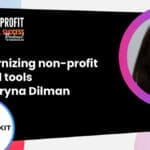

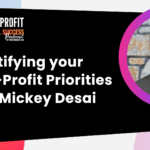




0 Comments